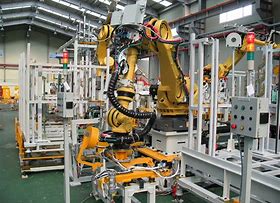Revolutionizing Tire Workflows
In the dynamic landscape of tire manufacturing, the integration of automation stands as a transformative force, reshaping workflows and redefining efficiency. There are a multitude of ways in which the benefits of automation in the production of tires can be used to provide strategic insights for its successful implementation in the workforce.
Driving Precision and Efficiency

Automation’s foray into the tire manufacturing industry has brought with it a new era of precision and efficiency. From the meticulous layering of rubber compounds to the complex molding of treads, automated systems carry out tasks with unparalleled accuracy, virtually eliminating errors that can stem from human intervention. This precision not only ensures the highest quality in tire production but also accelerates the overall manufacturing process.
Efficiency Unleashed: The Advantages of Automation

At the core of automation’s appeal lies its ability to unleash unmatched efficiency. Tasks that were once labor-intensive and time-consuming are now executed seamlessly by automated machinery. This heightened efficiency directly translates into reduced operational costs, optimal resource utilization, and the capacity to meet market demands at an accelerated pace.
Strategies for Seamless Integration
The successful integration of automation into tire manufacturing begins with a strategic approach. Starting with automating specific tasks that yield immediate returns on investment provides a solid foundation. Collaborating closely with automation experts to develop tailor-made solutions that align with the unique requirements of tire production is equally vital. Equally crucial is empowering the existing workforce to collaborate effectively with the new technology. Training programs that bridge the gap between traditional expertise and modern automation technologies ensure a smooth transition.
Towards a Future of Innovation
As technology continues to evolve, the potential of automation in tire manufacturing continues to expand. The future envisions a seamless collaboration between human ingenuity and automation precision. Imagine a scenario where skilled tire artisans work side by side with robotic systems, resulting in a symphony of craftsmanship and advanced technology that pushes the boundaries of tire manufacturing.
In the world of tire manufacturing, automation isn’t merely a tool, rather a catalyst for transformation. The benefits it offers, including precision, efficiency, and consistency, are reshaping the industry’s landscape. As the tire manufacturing sector grapples with the challenges and embraces the opportunities presented by automation, one thing remains clear: the journey towards streamlined processes and unparalleled quality begins with the embrace of automation. This journey will undoubtedly lead to a future where innovation and automation seamlessly coexist, crafting a legacy of excellence that underscores the profound impact of automation in modern tire manufacturing.




